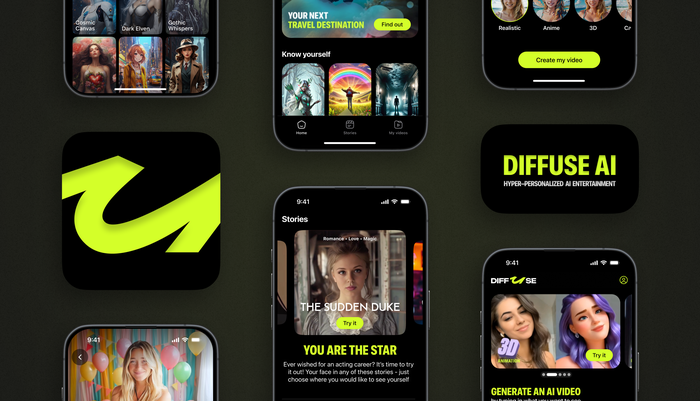Can a dialysis clinic lead the way in reinventing healthcare? Enter DaVita’s Center Without Walls

Matt A.V. Chaban
Senior Editor, Transform
Using a range of AI and cloud-based technologies, one of the world's leading kidney-care providers is giving more freedom to patients and caregivers alike.
A diagnosis of kidney failure changes one’s life instantly and forever.
Unless and until a kidney transplant becomes possible, you may spend several hours a day, at least three days a week, undergoing dialysis treatments that cleanse your blood. That may be at home or in a dialysis center, but either way, without a transplant, you will need to adhere to this regular treatment routine — impacting where you can go, and when, for the rest of your life.
This challenge is one experienced across the healthcare landscape by patients and caregivers alike. Many medical offices and clinics remain on location-based computer systems that date back to the 1980s and are heavily reliant on paper documentation. (How often have you been handed a clipboard, versus a tablet, at the doctor’s office?)
There are more than 750,000 Americans living with end-stage kidney disease and millions more around the globe. Each is seeking more freedom and flexibility when it comes to their regular dialysis treatments, making it easier to go on that dream vacation or simply spend the weekend with family across town. Their care team, meanwhile, wants to ensure the most complete picture of health in all these settings.
DaVita, a major kidney care and dialysis provider in the United States, has sought to give patients more choices since its inception. The kidney care field has long pushed for greater access, dating back decades to a wave of community-based dialysis centers that opened to help bring kidney care outside the confines of the hospital. Now, with the help of cloud-based and AI technologies, DaVita hopes to break down even more barriers.
The company’s name comes from “dare vita,” Italian for “giving life.” With their new Center Without Walls technology platform, they want to give more freedom, too.
“Historically, when a patient would want to transfer, for example, or take a vacation, say they live in Florida and want to go to Las Vegas, we would have to fax paperwork from one facility to another,” Alan Cullop, DaVita’s chief information officer, said in an interview with Transform. “It was very cumbersome, very time-consuming. Maybe there were problems getting the records there, or updating them when they came back. We wanted to eliminate that, to make it easier for everyone — the patients and practitioners — saving time and effort and supporting the accuracy of medical records.”
The other pillar of Center Without Walls is also giving more freedom and flexibility to its clinicians and caregivers. As part of a 55,000-member team, DaVita’s caregivers work across a network of 2,694 facilities in the United States (and hundreds more in 11 other countries). Annually, they serve more than 200,000 patients, who are receiving therapy in-center or at-home in daytime or overnight settings.
“Before CWOW, it really was just a server in a closet in each one of our centers,” Jay Richardson, DaVita’s chief technology officer, said. “This is about moving from a center-based model to a patient-based model that all the centers can tie into.”




Whether in-clinic or at-home, the CWOW platform gives patients more freedom to connect with caregivers and manage their treatment.
By building a new, centralized cloud-based platform, DaVita joins a movement sweeping healthcare in recent years. By bringing together patient data, and providing greater access and insights to practitioners, it not only makes medical care easier for everyone — it is also key to helping drive better clinical outcomes and potentially lowering costs. This is particularly relevant in treating kidney failure given the volume of treatments and frequency of clinical interactions required, which lead to an overabundance of data.
The Center Without Walls (called CWOW within DaVita) makes it easier to seek treatment across DaVita’s network, saving time for caregivers in the process, while helping them provide more proactive care as the platform connects the dots for each patient and across all patients.
“Rather than opting for an off-the-shelf solution, we saw the opportunity to build a system from the ground up that would provide patients and practitioners with the confidence to harness information, ultimately helping deliver better care,” David Maughan, a senior vice president at DaVita and business lead for CWOW, said. “This whole continuum of care becomes really, really important, because once we have more data, it allows us to intervene more proactively. This is the magic of how data can help us detect problems before they become serious.”
An evolution in healthcare
Data is arguably becoming equal to medicine in the potential for saving lives and curbing often steep medical costs, whether that’s for kidney disease or another medical condition.
Researchers believe that more than 1 in 10 people suffer from some form of kidney disease, and the number rises to one in four above the age of 65. As many as 90% of those people are unaware they have kidney disease, which makes detection so important — especially when half of all dialysis patients wind up “crashing” into treatment. Such emergency procedures are not only physically and emotionally taxing; they also tend to cost an average of $53,000 more per patient in the first year of treatment.
“Behind every treatment, behind every insight, behind every piece of data, there's a person, a family, a community, and a treatment team that considers them family,” Cullop said. “These people spend more time with their treatment team, in certain cases, than their friends or families. It's a very, very personal type of experience. So, our focus is to utilize technology to work for the patient, not the other way around.”
The Center Without Walls platform is a natural evolution of DaVita’s long-standing mission, as well as the direction of healthcare as a whole.
Neighborhood dialysis centers like DaVita’s began opening in the 1970s to help address some of the problems of time spent booking appointments and traveling to hospitals, where dialysis first became available in the 1940s. Even in these center-based settings, though, there was still all the paperwork and practitioner time to contend with if you wanted to go beyond your local center. The paper-and-server-based systems also had a lot of gaps, which the push for electronic medical records over the past two decades is meant to help solve.
“Before, we couldn't track the patient's journey very well,” Cullop said. “If you went to the hospital, we didn't have a good line of sight to you until you either came back or we had to call the hospital. If you went to see other care providers, we didn't have visibility to that information. We knew what happened to you when you were in our centers, and then what you’d tell us about, but we wanted the ability to actually track more of that through data. It creates a very patient-centric perspective that leads to much better health overall.”
The dream of data-driven medicine
Such data-driven personalized and preventive medicine has long been the dream of those in healthcare technology, one that DaVita is finally helping to achieve with a little help from the cloud.
“Technology is what has allowed us to transition from being just a dialysis company to a kidney care company,” Maughan said. “We expect that technology will enable us to better and more proactively serve our patients and support our care teams, so they can operate more at the top of their license and focus on things that they're best at.”
Though the desire to innovate is strong in the healthcare industry, investments in forward-thinking solutions have lagged behind other industries, hampered by a strict and evolving regulatory landscape and the priority to save lives. There are regional divisions, siloed information, and different payment models to contend with. Healthcare demands precision, and many who practice seek to minimize risk, bureaucracy, and unforeseen consequences for patients whose lives may hang in the balance.


Patient data used to reside in a server closet within each clinic, making both movement and insights between clinics harder for everyone.
“Many healthcare systems were designed decades ago, primarily centered around in-person interactions and hindered by significant limitations in sharing data across different settings,” Aashima Gupta, global director of healthcare solutions at Google Cloud, said. “The integration of cloud and AI technologies is finally providing a transformative force.”
Part of what has put DaVita on the vanguard of the industry’s transformation is that the company has the benefit of working in a discreet area of the field while also having national reach and decades of perspective. This unique position strengthens the company’s ability to leverage technology to bring greater efficiency and effectiveness to kidney care.
“We do more than 30 million treatments a year — that's 94,000 treatments a day,” Cullop said. “We do as many as 2.3 million lab orders in a single day. It’s highly scaled, so you need to have a system that has quite a bit of processing power. We knew if we were going to create a centralized model, we’d have to do it on the cloud.”
Bringing the full treatment cycle to the cloud
DaVita set out to build the Center Without Walls platform five years ago, choosing Google Cloud as the underlying platform. By eliminating center-based data silos and adopting a cloud-based architecture, DaVita was able to create a patient-centric data model that allows them to aggregate data across millions of treatments to better understand trends in kidney care and power those proactive interventions.
The team built the new platform one module at a time, piloting the effort in a handful of centers to start. Each step in the dialysis process was broken down into different workflows, which were then reintegrated into a more user-friendly interface built on the cloud.
“When you’re building something to serve 10, 20, even 200 centers, it’s a very different proposition than something that must eventually scale to serve nearly 3,000,” Cullop said. “At first, it was a little bit clunky, but with so many patients and practitioners affected by this work, we wanted to be sure we got it right.”
Before CWOW, it really was just a server in a closet in each one of our centers. This is about moving from a center-based model to a patient-based model that all the centers can tie into.
Cullop said one of the main reasons DaVita selected Google Cloud to partner on building its suite of applications was the willingness to collaborate on the design and development of the project. His team also liked how quickly the Cloud Spanner database could scale to meet the changing needs of the evolving project and the ability to get real-time, AI-powered insights to doctors and center staff using tools built on BigQuery.
For Gupta, the collaboration has been the realization of ideas about healthcare her team at Google Cloud has been striving for for years.
“We’re providing the robust backbone for DaVita's vision of CWOW, facilitating the secure storage, access, and exchange of critical patient data and enabling healthcare to transcend physical boundaries,” she said. “It serves as the linchpin that connects patients, providers, and data, allowing for the seamless delivery of care that is at the heart of their mission. Davita’s commitment with CWOW demonstrates that the future of healthcare is not limited by walls, but boundless in its potential to improve lives.”
Building towards a higher standard of care
At the DaVita locations and home-care settings now operating the Center Without Walls platform, each dialysis treatment setting is outfitted with a terminal that has access to the CWOW software suite. With just a few simple swipes, caregivers can now pull up, and update, all relevant information for the patient, including real-time blood pressure, blood type, the content of the blood, all relevant prescriptions, treatment history, and other existing health conditions or comorbidities.
“We think about data differently now,” Richardson said. “Now, the data follows the patient, not the clinic. And that's a big mindset shift.”
Creating better outcomes for patients with kidney disease is especially important given healthcare challenges many of them already face. The disease is often brought on by preexisting conditions, such as diabetes, high blood pressure, and obesity, which often affect underserved populations. This helps explain why the vast majority are unaware they have the condition until it is too late.


The Center Without Walls is an exemplar of how cloud and AI technologies are helping to forge new connections, and achieve better outcomes, across healthcare.
The data insights facilitated by the Center Without Walls platform can help lead to earlier detection, which can help enhance treatment plans. And by being on the cloud, the platform integrates more easily with existing electronic health records, improving information sharing within DaVita’s network of physician partners.
With more than 100 terabytes of good, well-curated data on patients and patient history, DaVita is able to quickly recognize the signs of individuals who are at risk.
“We've always cared deeply about improving our patient outcomes and our patient’s lives,” Cullop said. “What we didn't always have was the systematic support to allow us to care for them as holistically as we wanted to. With CWOW, that’s finally changing.”
Happier caregivers, healthier patients, better outcomes
As of June, CWOW had launched in all of DaVita’s North American centers, and the data has begun rolling in on improvements and optimizations. “Whether you’re in Des Moines, Decatur, Dallas, or Denver, it’s the same screen, the same view of the patient, the same everything,” Richardson said.
This simplicity helps reduce the burden on caregivers, allowing them to focus on patients instead of screens. It not only enhances patient care but also job satisfaction, which is more important than ever as the healthcare industry as a whole is still dealing with the stress and burnout coming out of the pandemic.
“We think a lot about how we provide a more fulfilling place for nurses and patient-care technicians to work,” Maughan said. “If you're a patient care technician, you want to spend your time caring for patients, not filling out and faxing paperwork.”
With all the data now available to practitioners, analysts, and executives at DaVita, the Center Without Walls platform has the potential to become the center without limits.
The systems are designed to continually iterate and evolve, so both the work of IT and caregiving should only get easier and more effective. In particular, DaVita is developing more than 40 AI models to help enhance treatment and earlier detection, providing further support for healthier outcomes and more cost savings. Cullop said the smallest things can have a big impact, like algorithms that can detect if a dialysis tube has become unattached from a patient in an at-home setting, sending an alert to the care provider to address it.
“With the power of the cloud, and the power of Google, I see healthcare entering a golden age of disease intervention using AI and predictive models,” Cullop said. “With our 20 years of insights into 30 million treatments each year, we can push clinical insights to doctors, helping them make the best decisions for patients, not because the AI said so, but informed in part by AI-driven insights.



